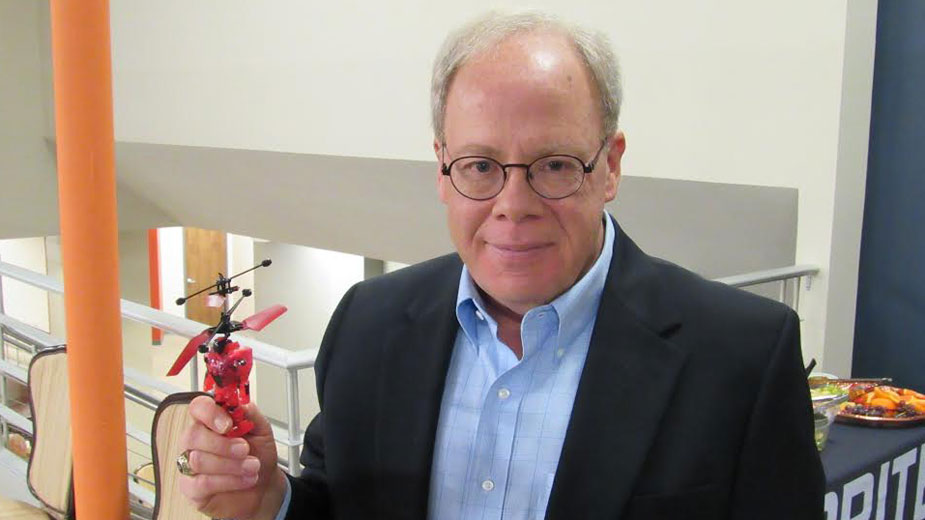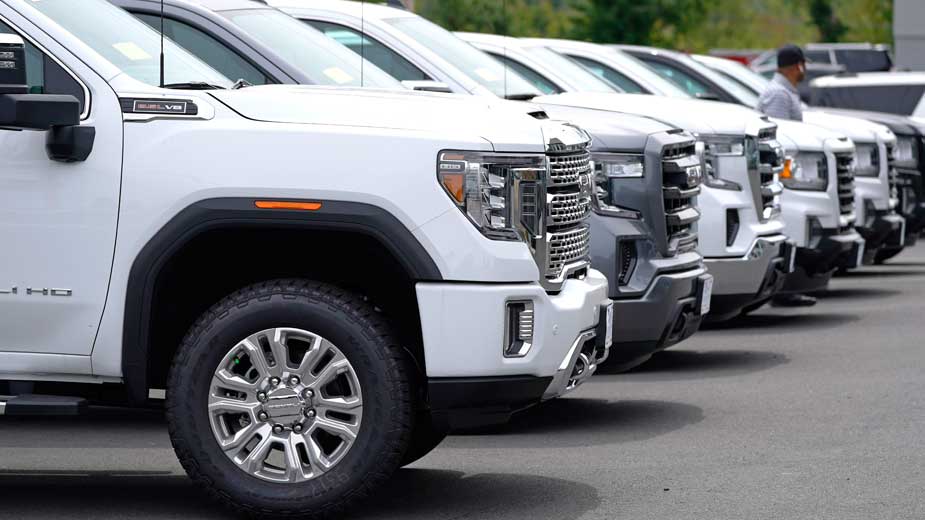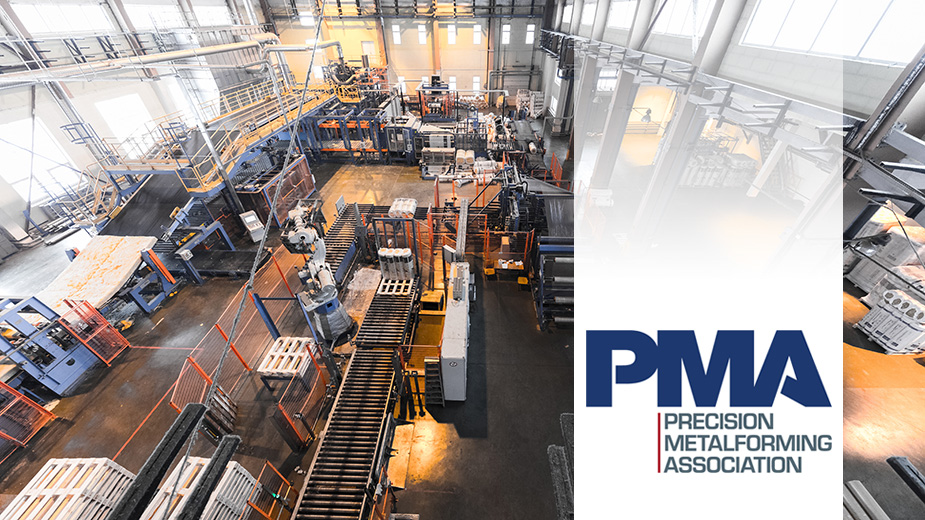Lithium Ion Power Could Be New Power Frontier
WARREN, Ohio – As he played with a toy robot Tuesday during Brite Energy Innovators’ Lunch and Learn, Tom Pfendler explained how his interest in batteries started young, after an introduction from his father.
The technology has come a long way from what it was when his father worked at General Telephone and Electronics Corp., now Verizon Communications Inc.
Although Pfendler, manager of product marketing for data-storage equipment company Vertiv, called his demonstration of how his toy robot works “silly,” he wanted to show how its fuel source – lithium ion power – has been an exciting addition to everyone’s daily lives, he said.
“Lithium ion, whether it’d be in our toys, our gadgets, our hand-held devices, our automobiles, it’s part of our daily lives,” Pfendler said. “Energy density is a big piece of that, so with my little flying robot, I wanted to use that as an example [the audience] would remember. He wouldn’t fly if I had only regular batteries to make that happen and he wouldn’t be so inexpensive if it were some other crazy solution that I couldn’t afford.”
Beyond daily-use items, lithium ion power is being applied to high-tech fields such as data centers, said Rick Stockburger, president and CEO of Brite.
“I’m fortunate I get to go to conferences all over the country and at every single conference, they say the biggest opportunity we have in this world to change the energy outcomes is battery technology,” Stockburger said. “Seeing that LG Chem and GM are building a battery plant here, Lordstown Motors is here, we have a center for battery testing right behind us.”
Ten of Brite’s portfolio companies — Chargii, Octet Scientific, Emanate Wireless Inc., Li-On Tamer, Mayim Group, Lordstown Motors Corp., Akron Polymer Systems Inc., pH Matter, Magajoule and Paragon Robotics — are involved in developing battery technologies and many of them are focused on integrating them with renewable energy, he said.
Batteries are tested at Brite every day, as are technologies for battery efficiency, Stockburger continued. It’s not only trying to bring technology forward, but it’s trying to educate folks on the bright future ahead of them, he said.
“Other partners like Youngstown State University, and being in the proximity of Carnegie Mellon University and Case Western Reserve University, it really puts us in a position to be the ‘Voltage Valley,’ ” Stockburger said.
Most people’s idea of a battery is that of something like a car battery, Pfendler explained. In that form, a combination of lead and acid powers six cells at two volts per cell, creating 12 volts of power, he said.
“You know that’s a 12-volt battery just by looking at it,” Pfendler said. “These are things that are ingrained in our upbringing. Lithium stores energy like lead-acid, but doesn’t use lead to do that.”
Lithium ion batteries are longer-lasting and are better suited to uses that draw lots of power at once. They are also lighter and perform better in extreme temperatures.
Pfendler also referred to a lithium ion battery as a “battery with a brain” during his lecture. When it comes to the application of batteries, particularly in the case of an uninterruptible power supply, the only thing between the person and getting what they want out of the battery is the positive and the negative, he said.
“Think about it with respect to managing lithium ion in a safe way that can be used in a multitude of applications is the reason for the battery management system,” he said. “Without the battery management system, it’s not a happy world. It controls events we don’t want to happen.”
In advance of coming here from Columbus for his lecture, Pfendler took the time to read about the opportunities for revitalizing existing businesses, reusing resources available, he said, and lithium ion power can be incorporated to many facets of those.
“A lot of that may be oriented to the automobile business or the electric vehicle business, but that is the next stage, in our industrialization of the Midwest and so many other areas, technology can bring,” Pfendler said. “Maybe there was a reason why manufacturing needed to change, but if we can respin that, with technology’s help, and it puts people to work and makes their daily lives better, then I think it’s a great thing.”
Pictured: Tom Pfendler, manager of product marketing, showed off a flying robot as a demonstration of lithium ion batteries at Brite Energy Innovators.
Copyright 2024 The Business Journal, Youngstown, Ohio.



